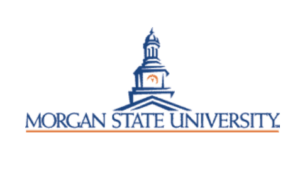Evaluating an Innovative, Structured Teaching Assistantship Program: Impacts on Student Success and Career Readiness
Morgan State University launched a comprehensive and intensive teaching assistantship program in Fall 2022 that, due to several factors, represents a transformative approach to training, monitoring, and developing recipients of teaching assistantships (TAs). Notably, Morgan had utilized only a very small number of TAs prior to this initiative. In this program, all doctoral TAs must complete two graduate-level courses. First, GRAD 601: Introduction to Higher Education Instruction, provides an introduction higher to education instruction; Second, GRAD 607: Understanding Student Outcomes through Tests, Measurement, Assessment, and Evaluation, addresses the topic for content specialists and is designed and taught by assessment specialists.
Institutions using TAs often address the content of the first course with the material typically presented as a set of workshops and often customized to disciplinary content. Typically, this is then managed in individual departments. Only a few institutions use a graduate, credit-bearing course, and very few require that course. The second course offers support for constructing assessments of student learning. The program received the ETS/CGS 2022 Award for Innovation in Promoting Success in Graduate Education: From Admissions through Completion prior to receiving support from the IGE Program.
Creating a shared environment with peer interaction, deliberate mentorship, and focused efforts for professional development as instructors–in addition to the course requirements–places the program in a unique situation for in depth study. For the NSF Innovations in Graduate Education grant, we established a central question for study, identified three interventions, and articulated five empirical questions.
The central question is: “Can a structured teaching assistant program change the teaching assistantship from one of service to a transformative experience resulting in success and academic career readiness?” Grounded on the common view that graduate research, especially in STEM disciplines, involves a student becoming an apprentice to their research advisor, we envisioned the model as one of the student being a research apprentice. Teaching can easily be dismissed as a distraction to the general program of preparing the future researcher. However, we also encountered a countervailing view that being a teaching assistant was helpful and promoted a greater sense of one’s scientific discipline and professional identity, along with improved readiness for career and success. The unique environment of MSTAP offers an opportunity to test these prevailing views.
Three interventions:
- required graduate coursework addressing higher education instruction and authentic assessment;
- mentor training for the numerous faculty mentors required by the TA program and subsequently, mentoring the TAs and non-TAs; and
- enhanced professional development, both centered on instruction and general professional areas.
The subject “pool” divides into students who have only TA awards, students who have research assistant assignments, students who have one and then the other, and students funded by other means.
- Read the abstract here
The five empirical questions:
- What are the effects on retention and completion;
- What is the effect of MSTAP on TAs’ career readiness and program success
- What is the impact on time to degree
- What are the changes in attitude and perception about the role of the TA appointment on overall readiness and success; and
- How do undergraduate students experience instruction provided by TAs.Each question has a corresponding set of measurements, some of which already exist (like student evaluation of instruction) and require minor modification, and others we are developing as the first phase of the grant project.
Currently, the project is focused on designing the measurement tools. This means creating, selecting, and validating survey items and designing questionnaires, along with the in depth interviews. The enlistment of the subject pool is also a current project. We are in the early stages of planning the mentor training and selecting faculty who will receive the advanced training. We have several experienced trainers on campus and who have roles on the project. Professional development workshops and seminars are already underway, some continuing from programs already in existence and others being developed just for this project (they will, however, become part of the inventory of programs).
As in all things, the project moves at a pace that seems glacial, though we are on our timeline. By this coming fall, nearly a quarter of Morgan’s doctoral students will be in MSTAP, with more than half having completed the coursework, and about a third in a third year of the program. The experiences of managing the program also contribute to the success of our research project and guide the project with a concrete, practical handle on its execution.

